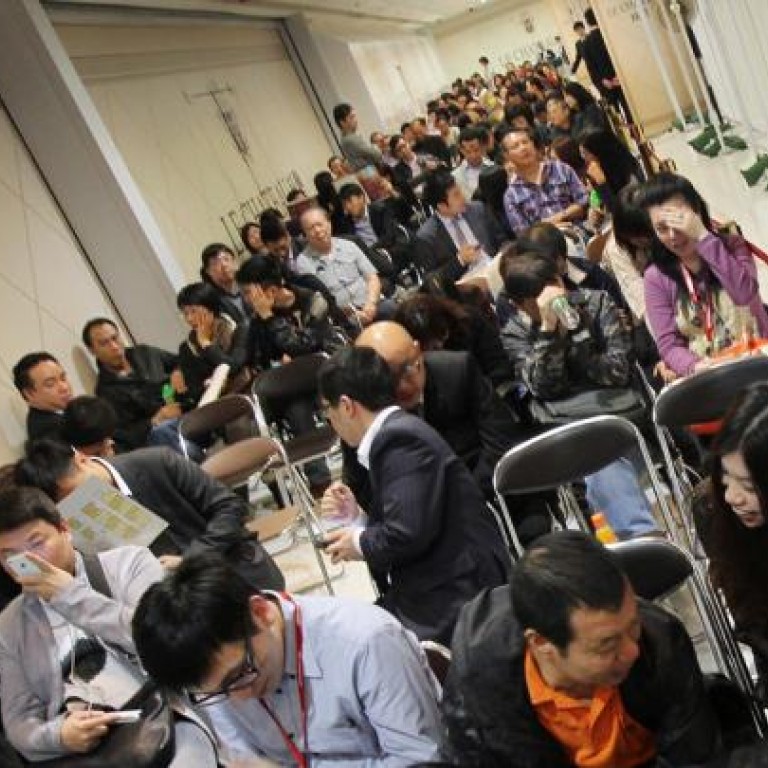
Loophole could spark rush to buy Hong Kong hotel rooms
As hundreds of buyers snap up hotel units in Kwai Chung for flats, development secretary says they could be seized if laws are broken
More hotel rooms could go on sale after the development chief admitted there was a legal loophole allowing such transactions.

Hundreds of buyers have rushed to buy four-year-old hotel units in Kwai Chung that Cheung Kong put on the market on Monday. Late last night the company said all 360 rooms in the Apex Horizon had been snapped up, with the last 65 selling for 5 per cent more than the first batch of 65.
The units, as commercial properties, are not covered by stamp duties the government introduced last year to cool the red-hot residential market.
Chan said the government would take over the Kwai Chung site if the designated hotel space of 21,190 square metres specified in the land lease was not maintained.
"I hope the public understands that the sales involved are not residential units … I have urged the Lands Department to look at how many hotels are eligible for partial sales," he said.
I hope the public understands that the sales involved are not residential units … I have urged the Lands Department to look at how many hotels are eligible for partial sales
The developer and agents have stirred controversy by telling buyers they can live in the properties as long as they sign an operational agreement with the hotel operator. Details of the agreement were not given.
Chan said it was not until July 2003 that the government specified in land leases that hotels could only be sold as a whole. Hotel sites auctioned and rezoned before then do not have such a clause. The Kwai Chung hotel was approved before July 2003.
In 2002 there were 98 hotels and 397 tourist guest houses providing 43,624 rooms.
The vice-president of the Hong Kong Institute of Surveyors, Vincent Ho Kui-yip, said turning hotel rooms into flats violated the Buildings Ordinance as the plot ratio - or development density - set for the hotel is 9.5, far higher than residential ratio of 5 in the same district.
But Cheung Kong executive director Justin Chiu Kwok-hung insisted that no residential property was involved in the sale. "We know we can sell it after a detailed study," he said.
Buyers were enthusiastic despite Chiu's reminder that the hotel may not allow cooking and that changing the furniture might need management approval.
One investor said he would buy a 600 sq ft unit for HK$3 million for his own use and was not worried about it being confiscated. "It should be fine as it is a big company and they would have consulted lots of lawyers."
The units sold at HK$5,200 per sq ft were cheaper than flats nearby, which cost in excess of HK$8,000 per sq ft.
Another buyer, Ip Chiu-sai, said he paid HK$3 million for a 600 sq ft unit.
Democratic Party legislator James To Kun-sun feared more developers would follow suit. But he said the government could not stop them by backdating the clause as this would violate the spirit of contracts. "The government can only sell more hotel sites if the supply of hotel rooms is affected," he said.
Civic Party lawmaker Alan Leong Kah-kit believed most hotels would not be sold as they were lucrative businesses.

